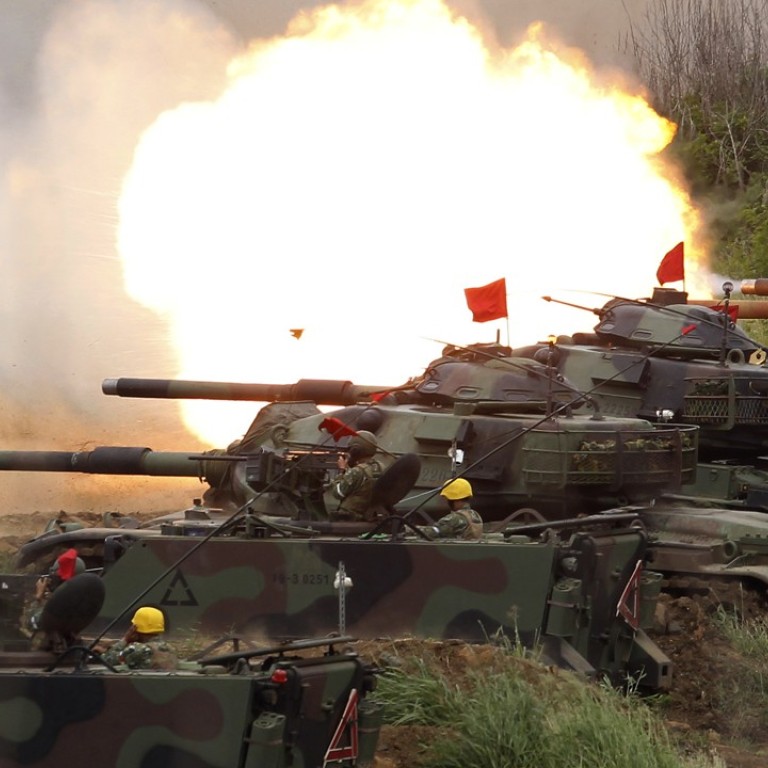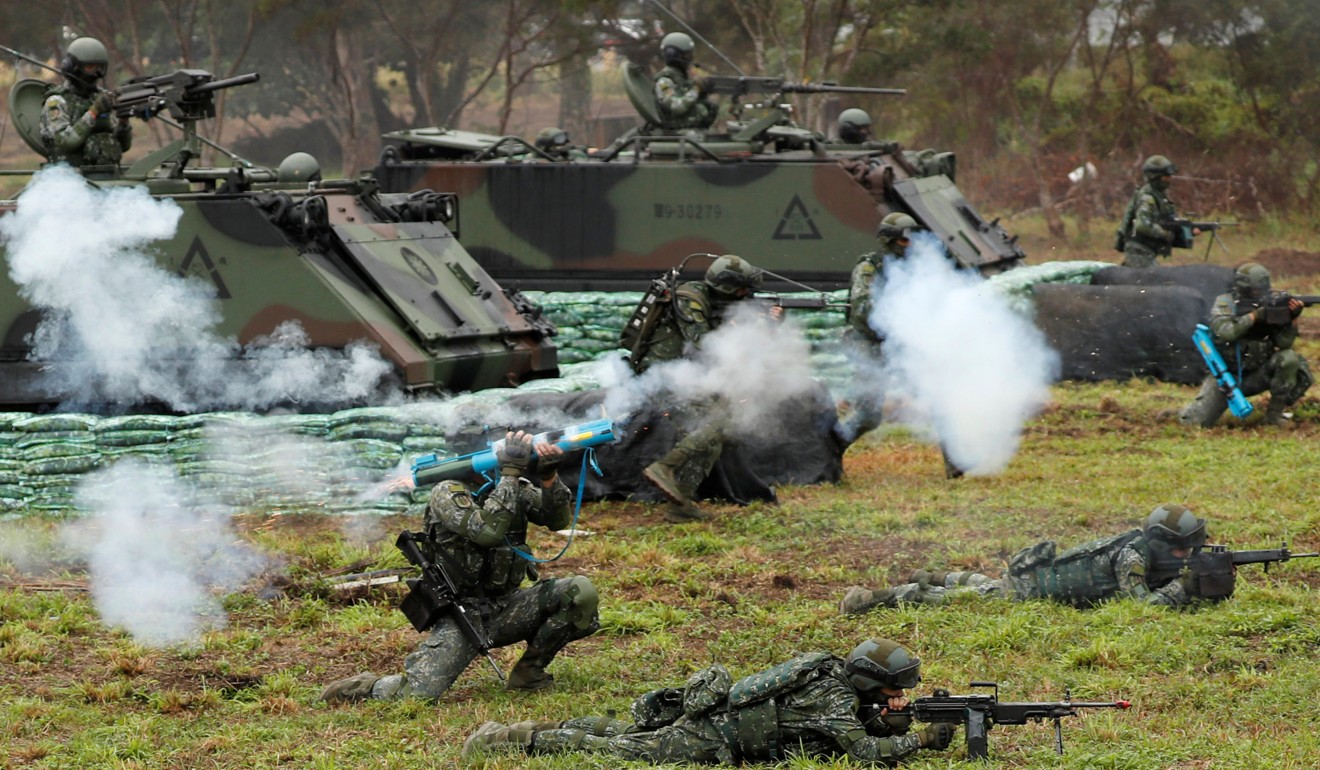
US risks retaliation with defence talks on Taiwan, Chinese analysts warn
Meetings on the island between American and Taiwanese officials would compound tensions brought on by the passage of two US bills, observers say
Another potential flashpoint for Sino-US relations is looming with plans for Taiwan to host a conference with American defence industry representatives for the first time in 16 years, mainland Chinese analysts have warned.
The annual US-Taiwan defence industry conference has long been a platform for Taiwan and the United States to discuss arms sales and has been held in the US for the last decade-and-a-half to avoid provoking Beijing, which claims sovereignty over the island.
But a Taiwanese military source confirmed to the South China Morning Post on Tuesday that Taipei and Washington agreed last year that from 2018, they would take turns to host the event and the conference would now take place twice a year.
The move is set to provoke Beijing and aggravate tensions in Sino-US ties brought on by US President Donald Trump’s decision in December to sign the National Defence Authorisation Act strengthening military ties with Taipei.
In addition, the Taiwan Travel Act, which would allow US officials at all levels to travel to Taiwan to meet their counterparts on the island, will soon be sent the floor of the Senate for passage after clearing the House of Representatives.

Hu Benliang, a Taiwan affairs specialist at the Chinese Academy of Social Sciences, said the US was “using Taiwan as a tool to contain China”.
Hu said that if the travel act passed and the US sent senior officials to the conference, it would risk “sending the wrong signals” to Taiwanese President Tsai Ing-wen that the US encouraged Taiwanese independence.
He also said endorsement of the travel act would likely prompt retaliation from Beijing, such as more frequent “island encirclement” patrols near Taiwan.
Liu Guoshen, head of Xiamen University’s Taiwan Research Institute, warned: “If this becomes the pretext for allowing formal exchanges [between the US and Taiwan], it would seriously undermine the stability of Sino-US relations.”
The US-Taiwan Business Council, which has organised the conferences since 2002, said earlier this month that it “looks forward to working with the TW-DIDA [Taiwan Defence Industry Development Association] on a separate defence delegation and seminar in Taiwan this spring”.
The Taiwanese military source said the conference would be held in Taiwan “in the first half of this year”.
But instead of discussing Taipei’s weapons wish list, the Taiwan meeting would focus on technical exchanges between defence manufacturers from the two sides.
“The discussions on arms issues and defence industry cooperation will be left to the conference to be held in the US in the second half of this year,” the source said.

In Beijing, spokesmen for the foreign and defence ministries were not available for comment because of a public holiday.
But state-run mainland tabloid Global Times reported last month that Taiwan and the US would pay the price for their high-level exchanges should the travel act become law.
Wang Kung-yi, a political-science professor at the Chinese Culture University in Taipei, said that if the travel act became law soon, it was very likely that the US would send senior officials to Taiwan with the arms sellers.
Wang also said that Taiwan’s hosting of the conference would be a boost to Tsai’s ambitions for the island to develop its own defence industry.
“Tsai is keen to develop shipbuilding, aerospace and information security in Taiwan. Having major US arms suppliers at the conference would be a definite plus for her policy,” Wang said.
Last year, the US pledged to sell Taiwan US$1.42 billion in arms, the first such sale under Trump’s administration.
Additional reporting by Catherine Wong

